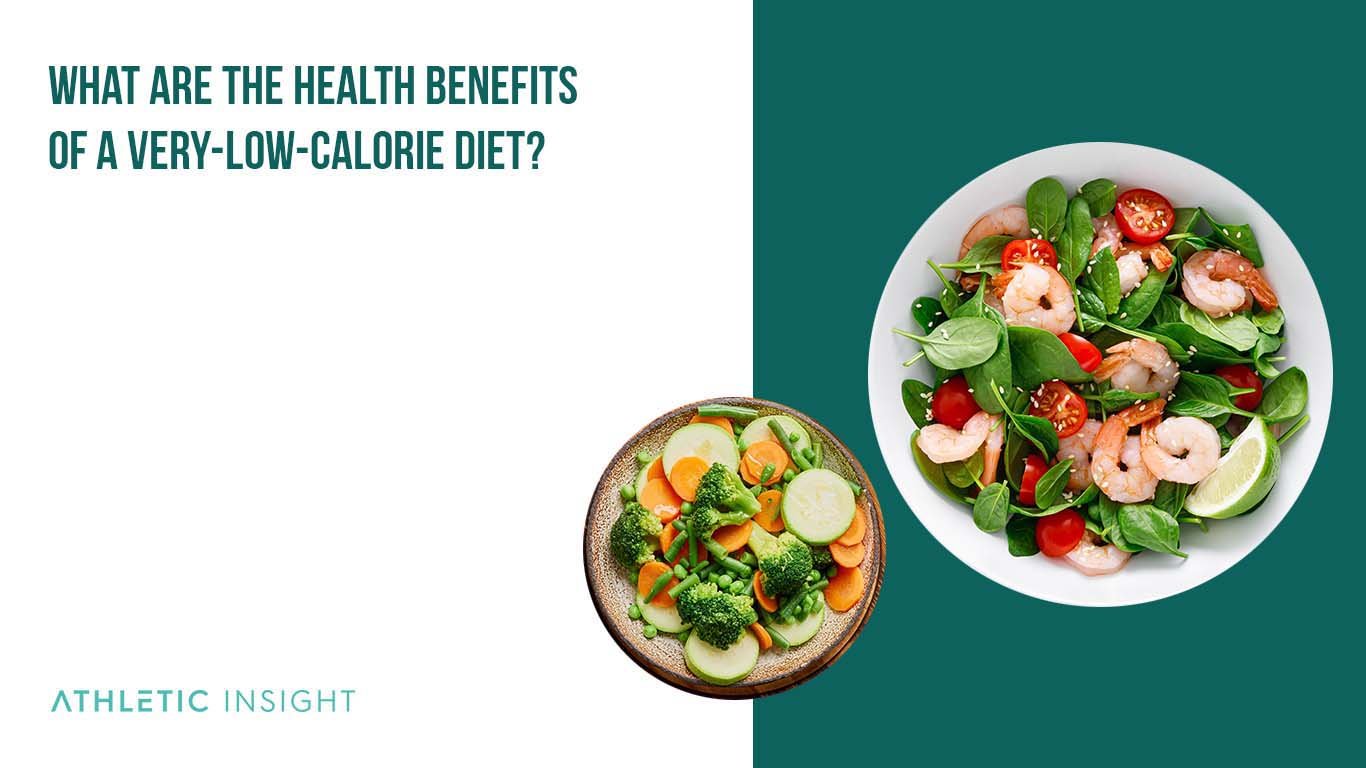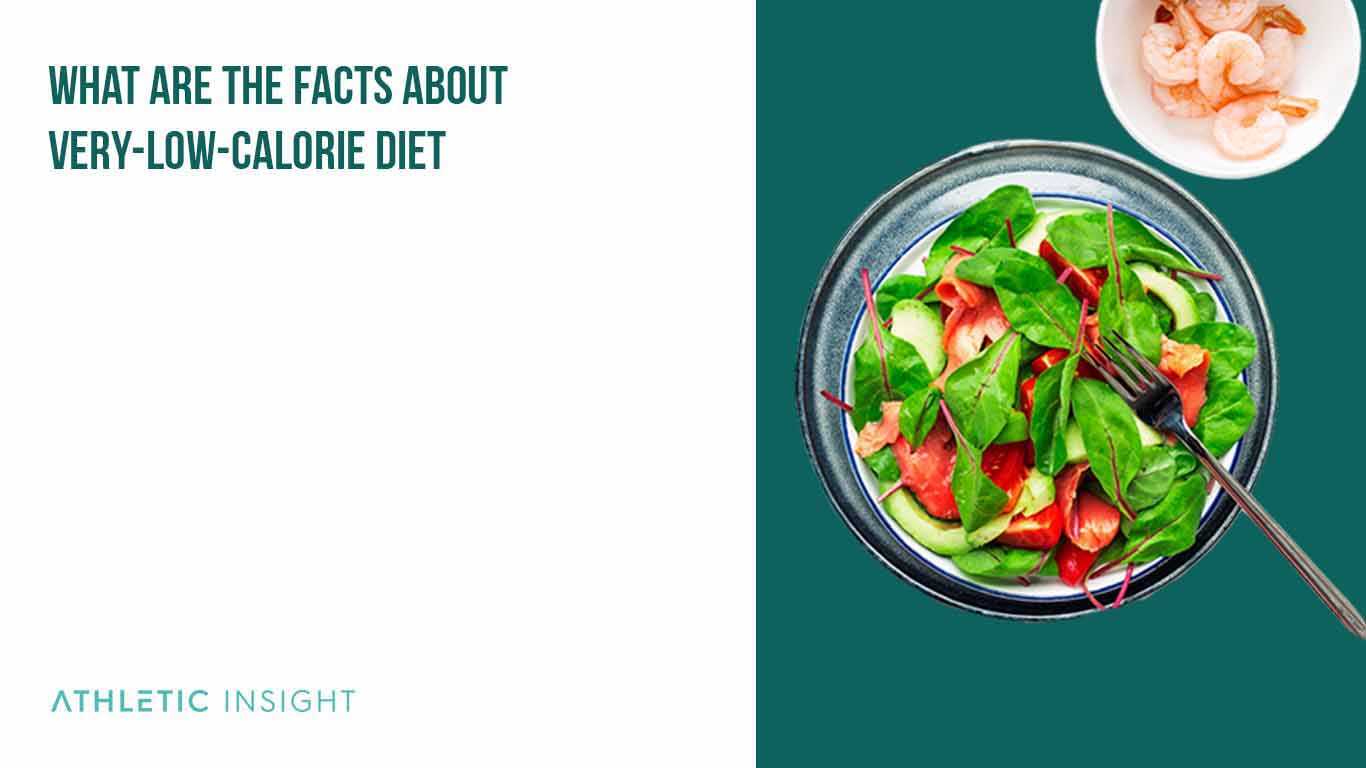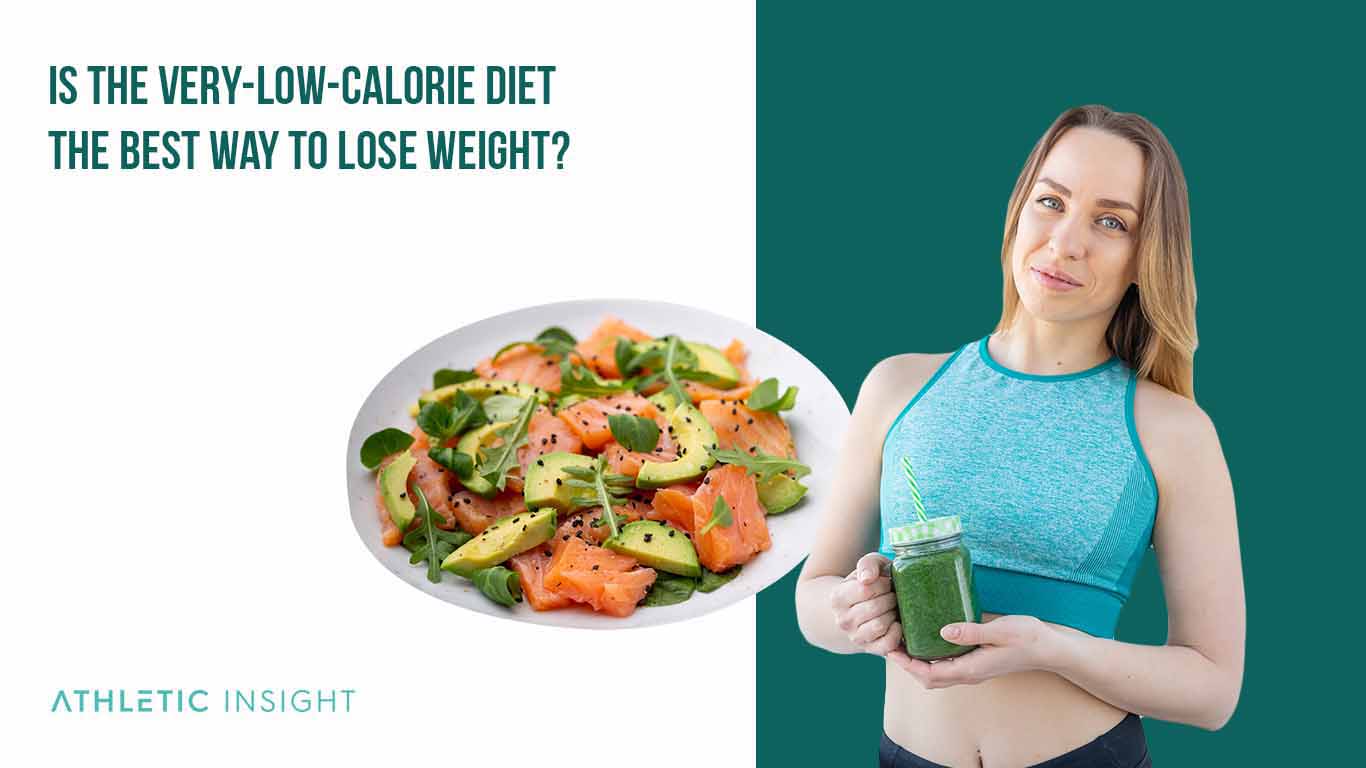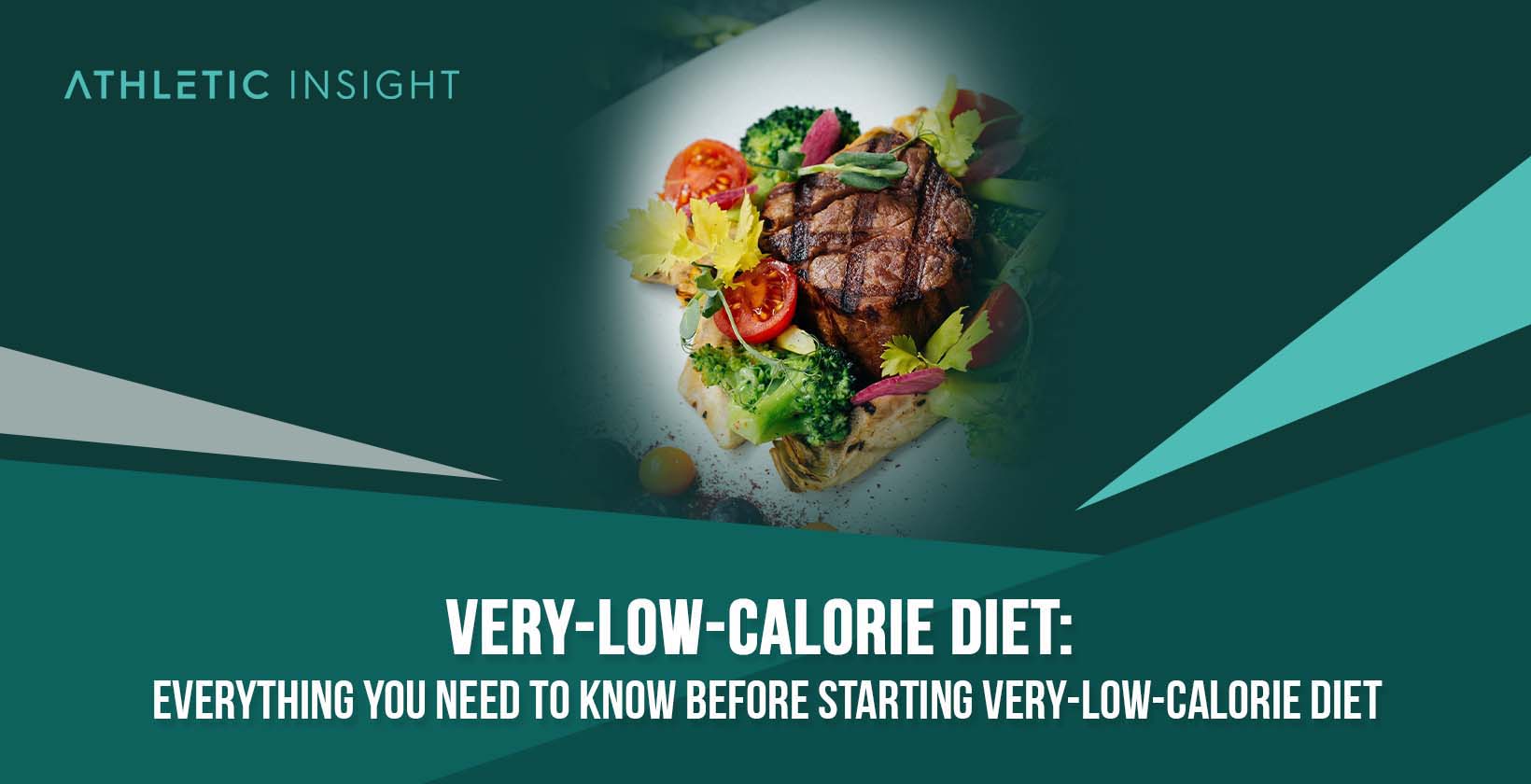Very-low-calorie diets only allow for the daily consumption of small amounts of calories while still keeping the same amount of minerals, fruits, and vegetables in their diet. For some, it is the quickest and easiest way to lose weight, especially if discipline is a factor.
Like all diets, it is best to consult with a professional before starting the process. A low calorie diet can be dangerous if one is not careful, especially if you are excessively working out, putting your body in a constant state of calorie deprivation.
While supplements are not typically zero calories, they certainly have a place for a low calorie diet, such as electrolytes and green powders. If you are considering a very low calorie diet, be sure to continue reading and learn the protocols to follow.
How Does a Very-Low-Calorie Diet Work?
Typically, in a very-low-calorie diet, you can only consume between 450 to 800 kilocalories (calories) per day. This diet aids those with a high BMI, who may experience obesity, and anyone wanting to lose weight swiftly.
Very-low-calorie diets offer many benefits to those who stick to them. Firstly, they help those who struggle with obesity to lose weight quickly and effectively without needing surgery or any expensive medical treatment. A very-low-calorie diet is either directed through specialist care or followed by you at home.
Finally, very-low-calorie diets are beneficial as they give dieters a way to lose weight without exercising. You can use a very low-calorie diet to get down to a healthy weight so you can begin exercising again.
In a very-low-calorie diet, the dieter must stick to a certain amount of calories each day, rarely exceeding or eating under the specified amount. You can achieve this by counting calories when you eat out and cooking very-low-calorie recipes at home.
Very-low-calorie diets may seem scary at first. You may worry that you could accidentally starve yourself or not receive the nutrients your body requires. The good news is that if you stick to the diet, you’ll achieve healthy results promptly and get down to the weight you want.
What Are the Health Benefits of a Very-Low-Calorie Diet?
For those of you who choose to undergo a very-low-calorie diet, multiple benefits exist for you. These benefits include weight control, overall health, natural mood booster, and it can improve blood sugar levels.

1. Weight Control With a Very-Low-Calorie Diet
A very-low-calorie diet requires you to consume a set amount of calories per day. Doing this ensures that you will lose weight and get down to the healthy weight you want and be able to maintain that weight.
Once you achieve your goal weight, you can remain on a very-low-calorie diet. For those of you who have issues with keeping weight off, this may be an option for you.
Paired with working out, staying on a very low-calorie diet can keep you at the healthy weight you have achieved without risking gaining it all back again.
2. Helps You Stay Healthy
Obesity has become a prominent health issue in the United States and other countries, with many struggling to maintain a healthy weight. Obesity is so much more than simply being overweight, as it can cause type 2 diabetes, heart disease, and cancer.
Therefore, it’s imperative to maintain a healthy lifestyle to lessen the risk of such illnesses. If you’ve been determined medically obese or worry about how high your weight is, a very-low-calorie diet may be right for you.
Following a very-low-calorie diet, you can easily slip down to a healthy weight. Adhering to the diet and maintaining an exercise program significantly decreases your risk of obesity and the consequences.
3. Boosts Mood and Well-Being
Being happy and confident in your body is a goal for both men and women alike. If you don’t like how you look, you always have the power to change. A very-low-calorie diet allows you to decrease your weight effectively in a short time frame.
Being at the weight you want can vastly improve your mood. You can wear the clothes you’ve always wanted to wear and do things you may have been unable to. You’ll be happier and more confident all around, improving your outlook on life.
4. Improves Blood Sugar Levels
Keeping a steady blood sugar level is critical whether or not you have diabetes. In most cases, blood sugar levels are too high which can cause serious health problems in the future. Maintaining a regular schedule of eating and staying healthy can help mitigate fluctuating blood sugar levels.
A very-low-calorie diet can help you achieve this. In this diet, you’ll eat a certain amount of calories at a specified time during the day. This regular schedule will help you maintain your blood sugar levels compared to other diets.
What Are the Health Risks of a Very-Low-Calorie Diet?
As with any diet, there are side effects and health risks associated with a very-low-calorie diet. These include the constant feeling of hunger, low energy, dry mouth, constipation, diarrhea, headache, cramps, dizziness, and hair thinning.
1. Feeling Hungry
This side effect will be the most common. Remember that while undergoing this diet, your calorie consumption will decrease significantly. You may be left feeling hungry, but this is typical when starting any type of diet.
Allow your body time to adjust to this new diet. Sticking to your schedule and prescribed calorie intake even when it’s difficult will ensure the quickest and best result for you.
2. Feeling Low on Energy
Another side effect of consuming less food is low energy. With less food, you’ll feel like you have less energy than you’re used to or no energy at all. If you’re still consuming the proper amount of nutrients for your body, you’ll be back to normal soon as this is simply your body adjusting to its new diet.
3. A Dry Mouth
Low saliva production causes you to feel as though your mouth is dry. This can be a side effect of lower calorie consumption, however, it can also be a sign of diabetes. If these dry mouth symptoms persist past a reasonable trial period for your diet, consult your doctor.
4. Constipation or Diarrhea
Issues involving bowel movements are common when starting a new diet, whether it be a very-low-calorie diet or another type of diet. Usually, changes in your diet will be accompanied by changes in your bowel movements.
However, continuous constipation or diarrhea is not good for you. Constipation during this diet can be caused by not consuming enough liquids, especially water. Diarrhea can be caused by drinking too much liquid.
Never try to drink your calories when doing a very low-calorie diet, as our bodies need solid food as well as hydration.
5. Headaches/Dizziness/Cramps
You may experience these symptoms due to lowered consumption of food. As your body adjusts to the new diet, these should wear off. In the meantime, drink plenty of water and make use of Advil and hot water bottles.
6. Hair Thinning
Hair thinning is yet another sign of decreased food coming into your body. However, it can also signify that your body is not receiving enough iron or protein.
Review the foods you’re consuming while on this diet, and see if you’re missing any important nutrients. Try to eat less and cook recipes at home that include plenty of iron and proteins to help mitigate hair loss.
What Are the Tips for Doing a Very Low-Calorie Diet?
A very-low-calorie diet isn’t simply setting a set amount of calories to consume per day. There are some tips to help you with your very-low-calorie diet journey.
1. Don’t Skip the Protein
Proteins make up so many parts of your body: muscles, bones, hair, and more. You can add protein to your very-low-calorie diet by eating eggs and meat (beans for vegetarians), even though they do have a high-calorie count.
Skipping these proteins can prove detrimental to your overall health, leading to effects such as hair loss. Try to keep proteins the majority of your calorie intake, between 45% to 65% of calories consumed.
Be wary of protein powders. While packed with protein, some will also contain thickeners and sweeteners (which you don’t want to consume while on a diet). Be sure to read the labels first to know what exactly is in the powder.
2. Don’t Drink Your Calories
Drinking calories can be tempting, as it seems you’ll lose weight faster. You may think the less you eat, the quicker you lose weight, but avoiding solid foods can be detrimental to your health.
We’ve already discussed how protein powders may contain other chemicals in them, such as sugars and thickeners. Relying on a protein shake or smoothie to deliver the daily nutrients your body requires won’t work.
Solid fruits and vegetables, as well as meats and beans, are needed by your body. An occasional fruit smoothie won’t hurt, but don’t rely on liquids for the majority of your low-calorie diet.
3. Dump the Junk
As with all diets, cut out unnecessary foods. While letting go of the sugar and fast food may be difficult at first, your body and mind will soon adjust. You’ll enjoy a sense of cleanliness as all the food you put into your body is fuel, not extra baggage.
4. Watch Your Carbs
Your body breaks carbohydrates down into glucose, also known as blood sugar. If you have diabetes or have a weight that causes diabetes to be a risk for you, you’ll need to keep a careful eye on how many carbohydrates you consume while on a very low-calorie diet.
Many foods contain carbohydrates, and some of these foods you need, like fruits and vegetables. Others, like sugars found in processed foods and grains, can be replaced with a healthier substitute.
How to Start a Very-Low-Calorie Diet
If you want to start a very-low-calorie diet but don’t know where to begin, this section is for you.
First, talk to your doctor. When you begin something new for your body, like a diet, consult your doctor. They may have prescribed it for you, but if they didn’t, it’s always best to let them know before any complications arise.
Next, make a plan. You may already have one from your doctor. If not, make your own! Simply figure out your desired weight (it can be straight from a BMI chart or a goal number you’ve set for yourself), and then plug it into a calorie calculator from a trusted source.
Now that you have your desired calorie intake, it’s time to plan. Find some recipes so you can make meals that hit your daily calorie consumption, or use the backs of food labels to make your own.
Mistakes made during a very-low-calorie diet include not consulting a doctor and not having a plan. These two pieces are crucial in achieving your goal weight in a healthy, effective way.
What Are the Foods That You Can Eat While on a Very-Low-calorie Diet?
One of the good things about a very-low-calorie diet is that it offers options when it comes to foods you can eat while on the diet.
Foods you can and should consume while on a very low-calorie diet include the following.
- Fruits
- Vegetables
- Lean proteins
- Low- or no-fat dairy products
- Whole grains
- Herbs and spices
When you’re making your plan for your very-low-calorie diet, be sure to include these foods as much as possible. Remember that proteins should make up the majority of your calorie consumption, followed by carbs.
What Are the Foods That You Should Avoid While on a Very Low-Calorie Diet?
The foods you should avoid consuming in your very-low-calorie diet food list include the following.
- Refined carbohydrates (in excess)
- High-fat foods (in excess)
- Sweetened beverages
These foods contain fats (which will work against the goal of your diet) and excessive carbohydrates (which can mess with your blood sugar levels). Avoiding these foods will keep you on track to your goal and help you avoid any medical complications.
What Are the Facts about Very-Low-Calorie Diet
A very-low-calorie diet is a great way to lose weight safely and effectively. You will still give your body all the nutrients it requires while cutting out unnecessary foods. A very-low-calorie diet can also work for anyone, no matter the age. If you’re needing to lose weight quickly, this diet may be for you.

Exercise is a great way to supplement your diet. If you’re extremely overweight, it may be a good idea to wait until you’ve lost some weight before you try exercising. Once you’ve achieved a healthy weight, exercise along with continuing the very-low-calorie diet can help keep the weight off.
Remember that once you start exercising, you’ll need to increase your calorie intake as your body will be burning off the calories while working out. Talk to your doctor to work out how many more calories you should consume.
Is a Very-Low-Calorie Diet Considered a Healthy Diet?
A very-low-calorie diet can be a safe and effective way to lose weight if you’re consuming a healthy amount of calories per day. The right amount of calories will vary for each person, based on weight, height, and age.

Don’t go below the number of calories your body requires; starving is not an effective way to lose weight as it’s incredibly dangerous to your long-term health.
Is a Very Low-Calorie Diet Worth Trying?
Yes, a very low calorie diet is worth trying. If you need to lose weight quickly for a medical reason or other, a very-low-calorie diet is worth a shot. Approved in 2002, this diet will help you lose weight quickly and can help diabetics with their health and blood sugar levels.
However, it’s important to be aware of the possible side effects of this diet including hunger, low energy, dry mouth, constipation/diarrhea, headaches/dizziness/cramps, and hair thinning.
Is a Very Low-Calorie Diet Expensive?
A very low calorie diet is not expensive. In fact, it is much more cost effective since you are consuming less food.
All junk foods, like fast food, should be cut out. So if you’re someone who primarily relies on junk food for food, then you might see a jump in your grocery budget. However, food for the very-low-calorie diet is simply choosing fruits and vegetables over foods with sugars and excessive carbohydrates, so the budget difference will be negligible.
You’ll also be eating less food, so paying more for small amounts of fruits and vegetables could be equal to paying for large amounts of fast food.
Who Should Do a Very-Low-calorie Diet?
People who do a very-low-calorie diet are often obese. They could be prediabetic or already diabetic, as the very-low-calorie diet helps in maintaining a certain level of blood sugar.
If you’re unhappy with your current weight and want to lose weight fast, a very-low-calorie diet can be for you too.
What Are Very-Low-Calorie Friendly Recipes?
A very-low-calorie diet can be easy. Take the stress of counting calories off your mind and try cooking some very-low-calorie recipes created to keep your tastebuds happy while on the diet.
If you like being a trailblazer, try to create your recipes using the backs of food labels. Otherwise, you can find many recipes while searching on Google or using Pinterest.
How Many Calories Can You Consume When Doing a Very Low-Calorie Diet?
You should consume as many calories as someone of your age, current weight, and height needs. This answer differs for everyone, so you should consult a calorie calculator or a doctor.
What Is the Initial Reaction of the Body to the Very Low-Calorie Diet?
Your body has been used to a certain amount of food for a long time, so anything less than that will be a shock to your system. You can expect the usual hunger pangs and cravings that come with any diet, dizziness, headaches, and cramps due to a lack of food.
The good news is that this is simply an adjustment period. Your body must first get used to consuming fewer calories. As your body becomes accustomed to it, these side effects will disappear.
If they do not go away, it’s a good sign that your body isn’t getting all the nutrients it needs to be healthy. If this occurs, check your diet to see if you’re missing anything or need more of something, like more protein and fewer carbs for example.
What Is the Proposed Time Frame for the Very-Low-Calorie Diet?
Most people doing the very-low-calorie diet take about a month to see results. Many will continue with the diet until they have reached their goal. Weight loss can take anywhere from a few weeks to a few months, depending on the person.
Once dieters reach their goal weight, some continue to stay on the diet so they may maintain that weight.
Will the Very-Low-Calorie Diet Work for All?
The very-low-calorie diet is proven to work in cases involving significant weight and obesity. The very-low-calorie diet is for anyone who is diabetic, prediabetic, obese, or those simply wanting to shed some pounds.
Is the Very-Low-calorie Diet the Best Way to Lose Weight?
A very-low-calorie diet has been proven as the fastest way to lose weight. While certainly a rigorous and demanding diet, it delivers swift results to those who are willing to stick to it.
Do We Need to Exercise While on a Very-Low-calorie Diet?
Most people doing the very-low-calorie diet hold off on exercising until they have reached their goal weight. Exercising burns calories and as a result, your body will demand more fuel.
People on the very-low-calorie diet wait to reach their goal weight, then they begin to exercise while adding more calories to their diet for their body to use.
What Is the Lowest Amount of Calories That Is Safe To Eat?
You should consume at least as many calories as someone of your age, current weight, and height needs to sustain life. This number is vastly different for each person, so you should consult a calorie calculator or a doctor for accurate information.



